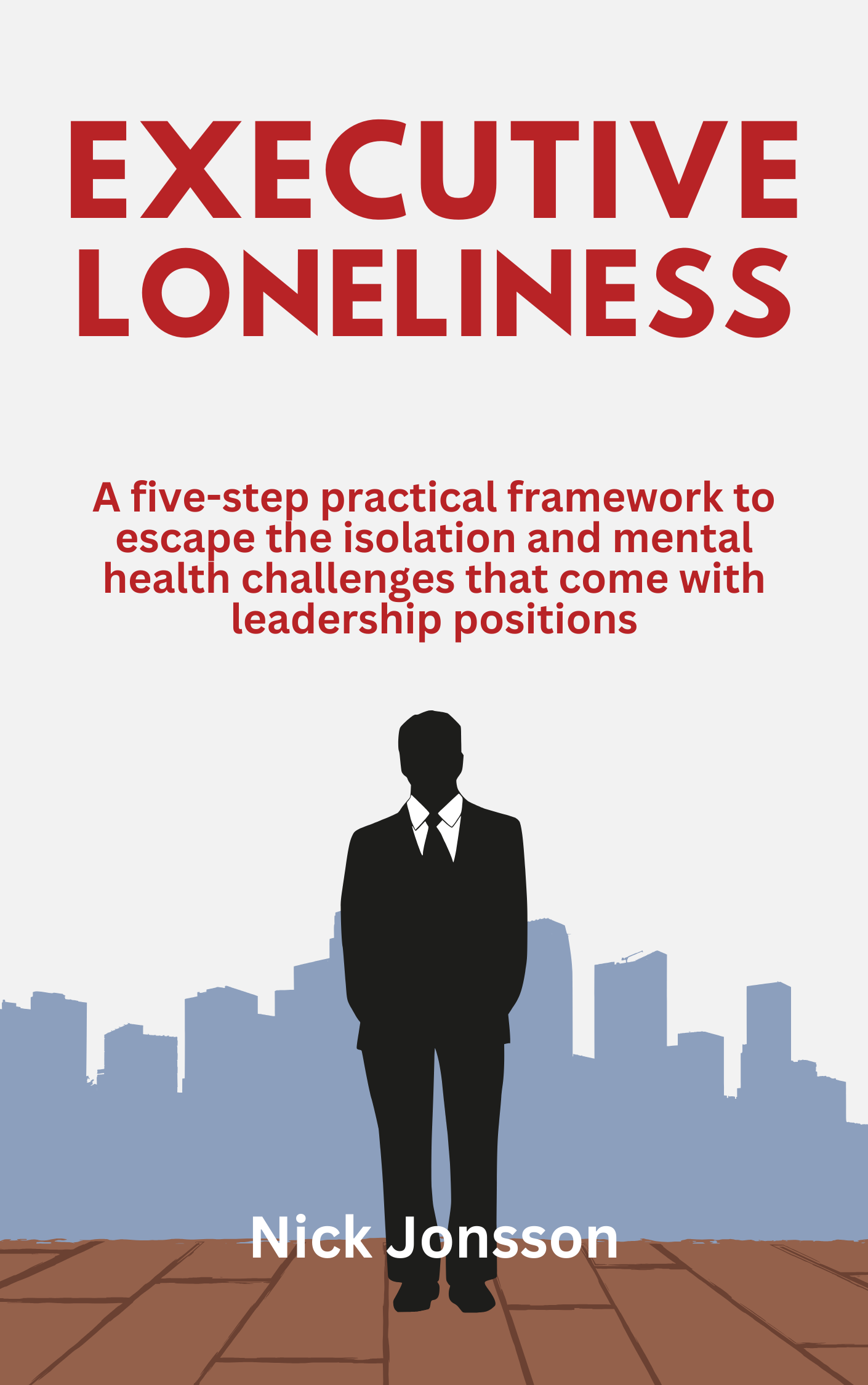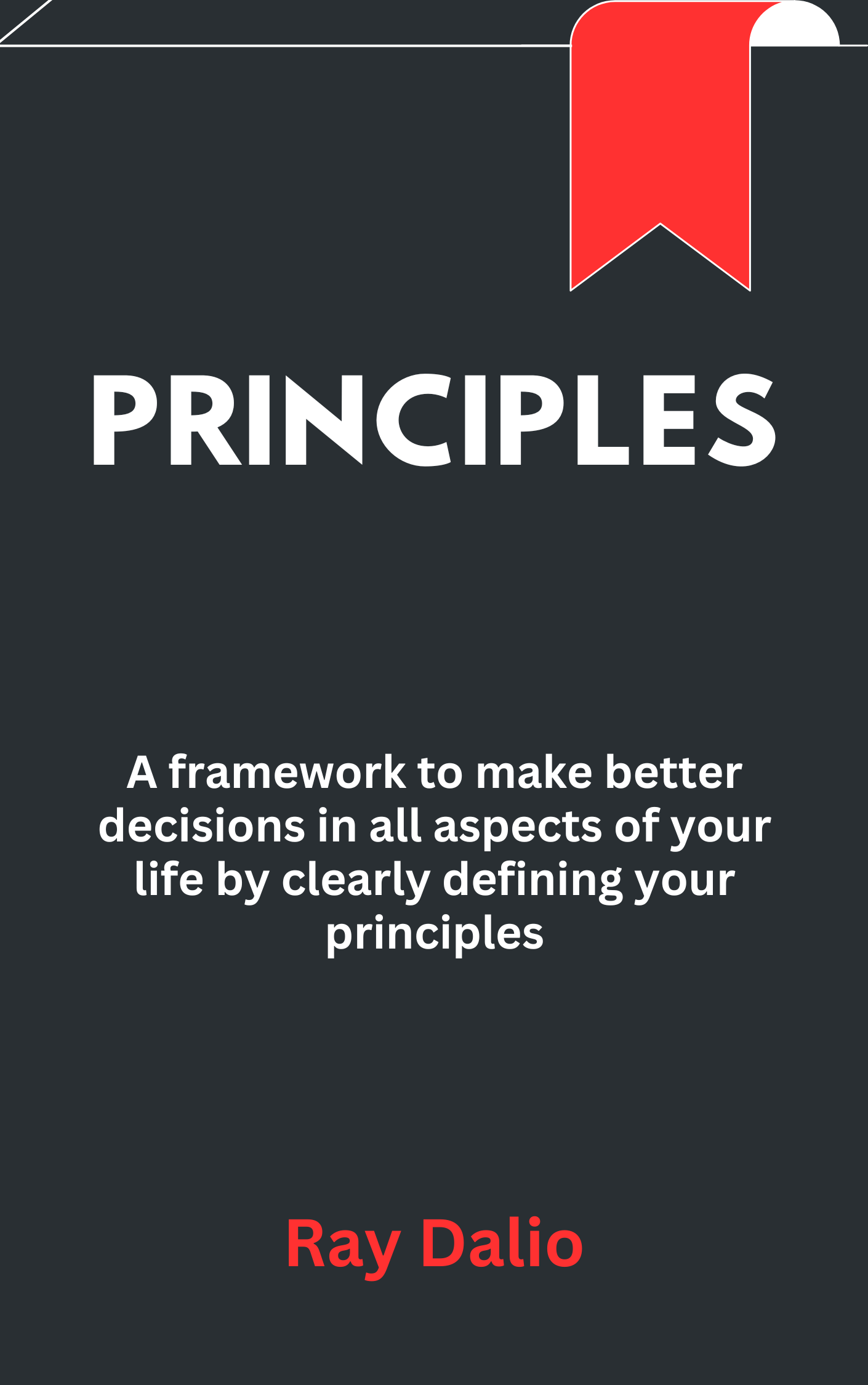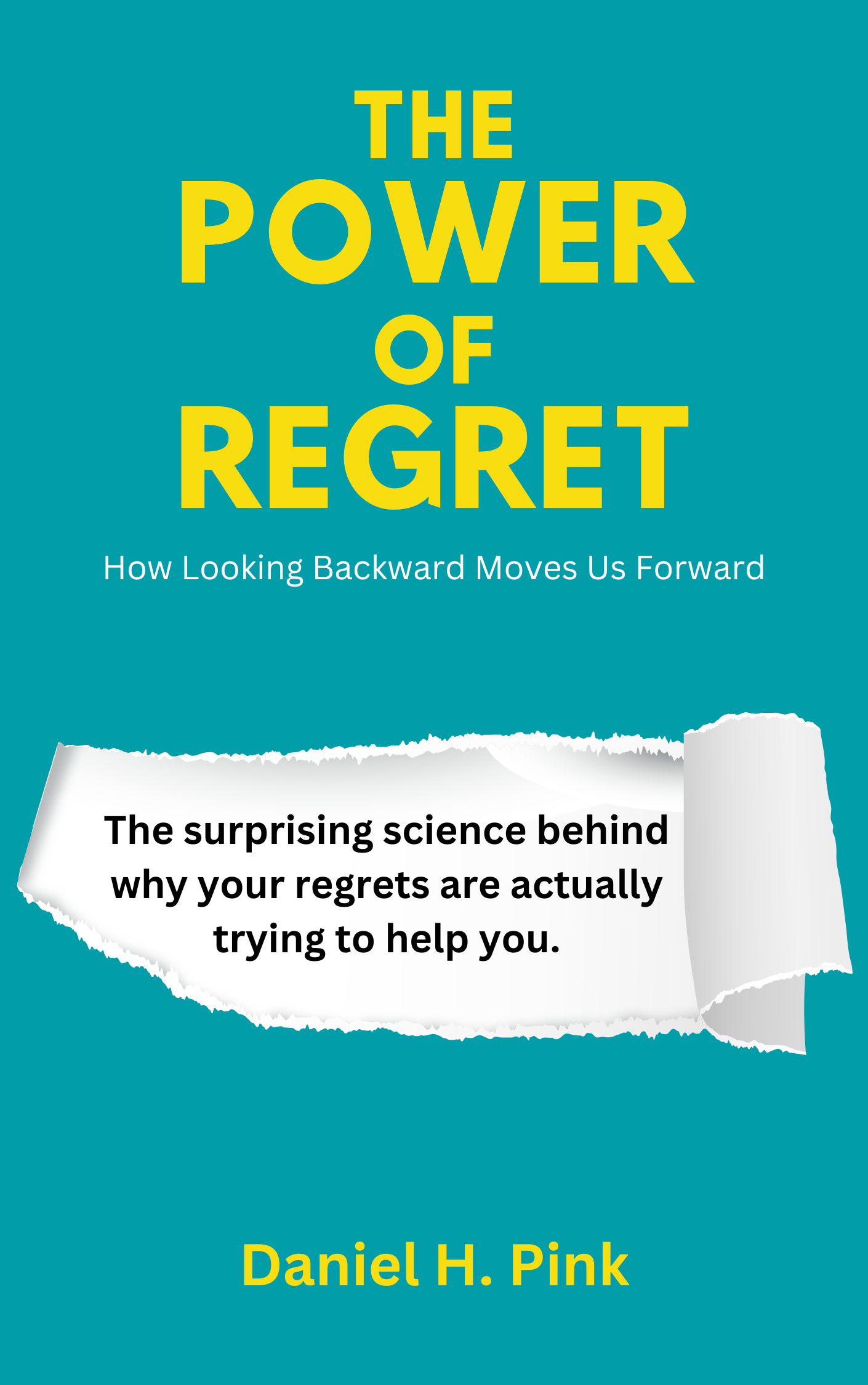Introduction
Executive Loneliness takes us behind the polished LinkedIn profiles of top executives to reveal the messy truth: behind every power suit is a human desperately trying not to crumble under the crushing weight of expectations they can't share with anyone.
Nick Jonsson's been there himself - smiling for the cameras while drowning inside. His book introduces us to people like George, who went from award-winning entrepreneur to contemplating jumping off his building after losing everything in 2008. Successful people suffer silently. That sunny CEO at your last networking event? According to experts Jonsson interviews, there's a good chance they're dealing with anxiety or depression right now. But, Jonsson doesn't just tell sad stories. He offers five down-to-earth pathways to climb out of isolation. Simple practical steps from someone who's walked the path.
If you've ever wondered why success feels so empty sometimes, this book hands you both answers and a flashlight to find your way forward.
When Jonsson Suffered Executive Loneliness
Executive loneliness hit Nick Jonsson like a freight train. One moment he was a successful sales manager in Vietnam, the next he was unemployed with a baby on the way. This became the first domino in a series of professional setbacks that would spiral into severe depression, anxiety, and alcoholism.
The thing about executive loneliness is that it thrives in plain sight. Jonsson was literally surrounded by people as a managing director yet felt completely disconnected from everyone. He put on what is called a "smiling depression" – looking perfectly fine on the outside while crumbling within. No colleagues suspected his internal struggle as he maintained his professional facade.
This isolation deepened with each career disruption. After being let go in Vietnam and Indonesia, he developed such severe anxiety that he actually resigned from a perfectly good job just because he feared being fired again. His coping mechanisms turned toxic – excessive drinking after work, taking valium to function in the mornings, and a 20kg weight gain out of pure stress!
Why does this loneliness of leadership not go away? As Nick explains, senior executives often can't confide in their teams (because it would appear weak), or their peers (because there aren't many at their level), or even their families (who expect strength and success). This leads to a dangerous isolation bubble where problems compound without release.
Digital spaces make this worse. Social media's highlight reel culture, where everyone presents their best selves, deepens the sense that you're the only one struggling while everyone else thrives.
Jonsson's turning point came after his friend Simon died by suicide – someone who also appeared to be "living the dream" but was suffering silently. This tragedy prompted Jonsson to break his silence and launch his campaign against executive loneliness.
His recovery followed five crucial steps: honestly taking stock of his situation, asking for professional help, rebuilding his physical health (he's been alcohol-free since May 5, 2018), nurturing authentic relationships, and finding purpose in helping others through their struggles.
Let's begin with the first step: finding just one trusted person with whom you can be completely honest. This single action broke Jonsson's isolation and began his journey back to connection.
The First Crucial Step
Break the Silence And Ask For Help
The hardest words to say are often the ones we need to speak most. Jonsson discovered this truth when executive loneliness nearly consumed him. One month into his second marriage, he felt so unwell he wrote his will. His turning point? Simply telling his wife how terrible he felt.
Speaking up isn't just helpful - it's lifesaving. Jonsson is alive today because he broke his silence. His colleague Simon, who seemed happy to everyone, died by suicide without ever sharing his struggles. The difference between their outcomes wasn't talent or resilience, but Jonsson's decision to speak up when the pain became unbearable.
When we're stuck in executive loneliness, we often believe seeking help shows weakness. This couldn't be further from reality. As executive Seamus learned, "Asking for help is not a sign of weakness." As Andy Lopata, author of the book Just Ask! says, the truth is people generally want to help - they just need to know you're struggling, and then they'll provide all the support you need.
Support comes in many forms. Friends and family provide emotional connection. Getting support from experts can help too. They bring specialized knowledge - Nick worked with fitness coaches, therapists, and counselors who helped him lose 20kg and reconnect with his distant son. Support groups like EGN offer confidential spaces to discuss professional challenges.
Jonsson credits much of his recovery to a support group for problem drinkers. For those thinking, "But I don't have the drinking problem Nick had," Jonsson explains that most of the group's practices weren't about alcohol at all. They focused on living stress-free and in harmony with yourself. Support group principles work whether you're battling addiction or simply feeling isolated in your leadership position.
Even reading provides powerful support. When Jonsson was at his lowest, he couldn't concentrate enough to read a single page. As he recovered, reading became a nightly ritual that brought calm and better sleep. Research shows readers enjoy lower stress, higher self-esteem, and a 20% reduced mortality risk compared to non-readers. Give it a try?
Today's action step: Think of something you need help with but have been avoiding. Identify three people who might help you solve it. Contact all three right now and... just ask! Breaking the silence creates the first crack in loneliness's walls.
The third step is something that will get you recovering faster than anything else!
Getting Healthy is Your Gateway to Defeating Executive Loneliness
When executive loneliness strikes, getting healthy becomes a powerful antidote. Jonsson made tons of discoveries during his recovery journey, and now you get to learn about the three fundamental lifestyle changes that can get you out of any slump!!
One, nutrition. You gotta fuel your body properly. That pizza-and-beer diet might taste great, but it's sabotaging your health. Jonsson learned this the hard way before transforming his eating habits. Trading alcohol for soda water and processed foods for nutrient-rich meals helped him shed 20 kilograms over 40 weeks.
Sugar plays a particularly sneaky role in executive mental health. Those "comfort foods" release dopamine temporarily but ultimately create fewer dopamine receptors - meaning you'll need more sugar just to feel normal. Breaking this cycle starts with tracking food intake. Try apps like MyFitnessPal to become conscious of eating patterns.
And "healthy body, healthy mind" is not just a saying, y'know. The body-mind connection runs deep - specific nutrients directly support brain function. Omega-3 fatty acids reduce inflammation, B vitamins fight fatigue, vitamin D (deficient in nearly half the population) regulates mood, and magnesium calms the nervous system. Gut health plays a surprisingly central role too, as beneficial bacteria produce substances that enhance cognitive function.
Speaking of cognitive function, ever noticed how problems seem enormous when you're exhausted? Quality sleep recharges mental batteries, especially between 2-6 AM. Alcohol might help you fall asleep, but it blocks restorative REM sleep - leaving you groggy despite hours in bed.
Want better sleep tonight? Remove alcohol from your evening routine. Jonsson found he could fall asleep within one minute of hitting the pillow after making this change. No more midnight water runs or disrupted sleep cycles.
And then there's exercise. Jonsson calls it "The True Happy Pill." Feeling down? Lace up those sneakers and RUN! Or start small - a daily four-kilometer walk will work, too. Exercise releases endorphins, dopamine, and serotonin - the same chemicals found in antidepressant medications. And FYI, for our older executives out there, try strength training. Research shows it can actually reverse memory decline in older adults.
The bonus? Exercise connects you with others. Join a running club, cycle with colleagues, or swim with friends. These activities create natural networking opportunities which is hella important, as we'll see next.
Breaking the Isolation
Step 4 fixes what is literally the name of the issue: loneliness. As executives climb higher, their circle of trusted confidants often shrinks dramatically. Logically speaking, this would mean diverse relationships can save executives. And the first relationship we need to work on?
With yourself. Your relationship with you matters most - you're stuck with yourself 24/7! Your thoughts, feelings, and inner dialogue never leave you, do they? So build a good relationship with yourself. Stop negative self-talk, do things that bring YOU joy, find a real purpose beyond your job. Beyond self-care, spiritual connection can provide purpose and peace. Whether through prayer, meditation, or quiet reflection, these practices help executives find meaning beyond quarterly targets and stakeholder meetings. This is the best investment you can make to get out any loneliness. Plus, it creates a foundation for connecting with others, because self-love is all well and good, but personal networks matter, too.
When networking, choose wisely because first connections shape entire experiences. Here's what that means: When Jonsson moved to Vietnam, his first social circle centered around a bar. In Indonesia, he deliberately joined fitness groups before arriving. Guess which one completely improved his lifestyle and wellbeing? Also, as one anonymous executive advised: "Stay in contact with old friends. Don't apologize for not speaking to them for ages. Start talking as if you chatted last week." Simple wisdom that might just save your career - and your wellbeing.
Professional networks serve as lifelines when work challenges become overwhelming. As a banking executive named Maureen discovered, pretending to have all the answers only increases isolation. Groups like EGN (Executives' Global Network) create safe spaces where leaders can admit challenges without fear of judgment. These connections are super helpful during career transitions. Fun fact: 80% of senior executives find new roles through networks, not applications.
Lastly, remember that gender brings crazy variations in how executives experience loneliness. While statistics suggest men suffer more from isolation, women face unique challenges in male-dominated fields where vulnerability might be perceived as weakness. Female executives often feel pressure to project constant strength, limiting authentic connections. So, tailor your relationship approaches to your needs.
Not sure if you're keeping up or not, but we have reached the last step of our recovery journey!








